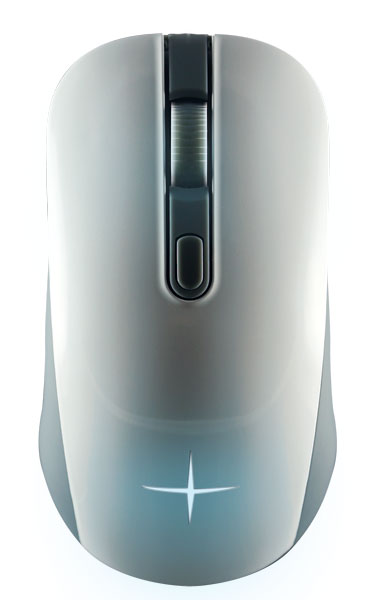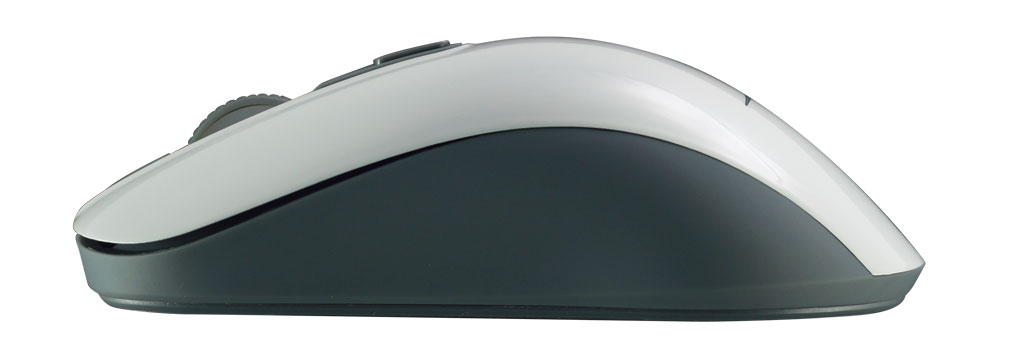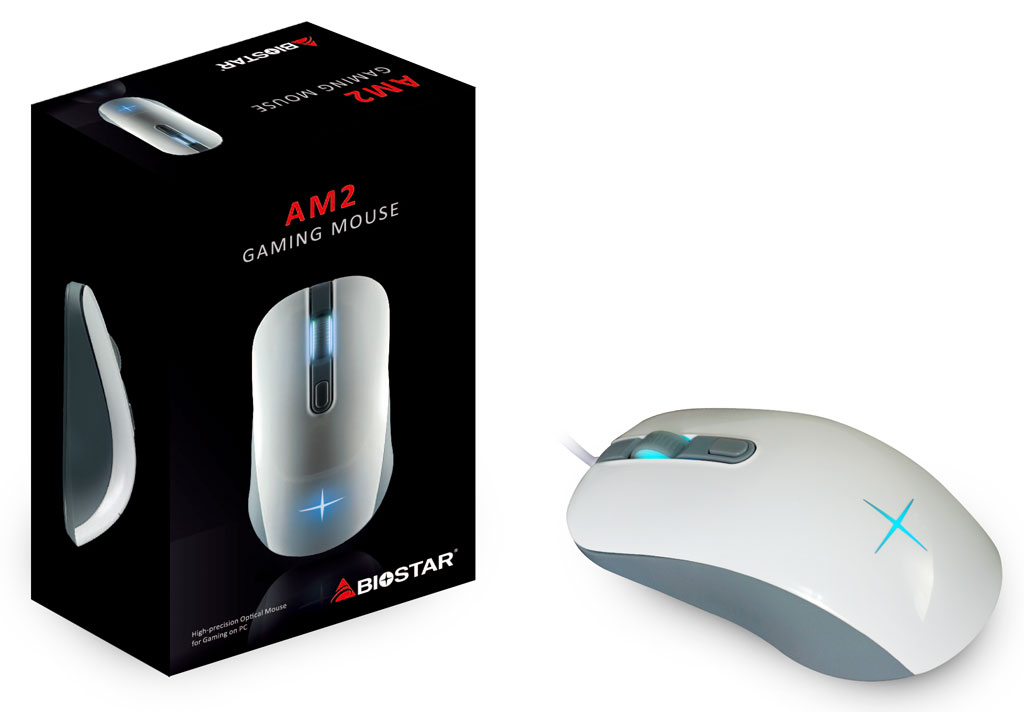Biostar's First 'Gaming' Mouse? Ten Bucks
Biostar, a company known for its inexpensive motherboards, is looking to expand its product categories with a gaming mouse, the AM2. That’s a dicey proposition in a peripherals market that is beyond saturated, but Biostar’s hook with the AM2 is the double-take price tag of just $10. That gets you a device that, at the very least, is doing a pretty spot-on impression of a gaming mouse that costs several times more.
The AM2 has two lighting zones, a four-step DPI switcher, and a slick look punctuated by a shiny white top panel and sharp-looking gray accents. The optical sensor (Avago 5050) is quite limited, though, offering a maximum of 2,400DPI. In fact, this datasheet indicates that the max DPI is actually 1,375 (CPI). (We’ve reached out to Biostar for clarification.)
Essentially, the Avago 5050 doesn’t seem built for gaming. But then again, your average “cheapo” mouse isn’t either, and I’m guessing many of you have pwned more than a few n00bs using less than optimal gaming mice. The low DPI, assuming it’s actually 2,400DPI, shouldn’t actually be an issue for most users. Sky-high DPI is a flashy marketing tactic more than a useful feature (which is not to say that it doesn’t have its place among certain users), and I have been told by more than one product manager that their research indicates that most users prefer a surprisingly low DPI.
The four DPI stages are preset at 800, 1,200, 1,600, and 2,400. You can toggle through them with the DPI button located on top of the mouse, and the LED color changes depending on the stage. At 800DPI the light is off entirely (an odd design choice), and at the subsequent stages, it’s blue, green, or blue-green.
There are no navigation buttons--just the L/R click, wheel, and DPI button. The ambidextrous AM2 employs Huano switches rated for a 10 million-click lifetime.
Biostar did not indicate where or when the $10 AM2 would be available.



| Header Cell - Column 0 | Biostar AM2 |
|---|---|
| Sensor | Avago ADNS 5050 optical |
| DPI | Up to 2,400DPI (according to Biostar) |
| Polling Rate | 125Hz |
| Ambidextrous | Yes |
| Switches | -L/R click: Huano, 10 million clicks |
| Lighting | -Two color zones-Color changes depending on DPI stage |
| Buttons | Left/right click, wheel, DPI button |
| Software | No |
| Cable | 1.8m rubber, USB |
| Weight | 125g |
| Availability | TBD |
| Price | $10 |
Get Tom's Hardware's best news and in-depth reviews, straight to your inbox.
Seth Colaner previously served as News Director at Tom's Hardware. He covered technology news, focusing on keyboards, virtual reality, and wearables.
-
SinxarKnights Hmm, it doesn't even have the most basic functionality (forward/back buttons) for a modern mouse. Yet it has a color changing light you can't see.Reply
I guess you get what you pay for. -
jimmysmitty Wait... Biostar is still around? I thought they were done for as I haven't seen much for their motherboards in a while.Reply -
SinxarKnights Reply18634050 said:Wait... Biostar is still around? I thought they were done for as I haven't seen much for their motherboards in a while.
I just looked at their website and apparently they do still have some recent boards out. Didn't even think about that until you said something. I haven't seen anything of theirs either in quite some time.
Sure enough: http://www.newegg.com/Product/ProductList.aspx?Submit=ENE&DEPA=0&Order=BESTMATCH&Description=biostar -
DookieDraws I am saving my money for the Pro version of this mouse, which I am hearing will be $11. :PReply -
synphul I'm not sure I'd consider it a 'gaming' mouse but so long as it lasts awhile, fits comfortably and doesn't completely suck (missed clicks etc) it's not a bad looking basic mouse. Better than most of the cheapos that come prepacked with a system, kind of like a knock off apple mouse. For $10, can't really complain if all someone needs is a basic mouse.Reply -
Achoo22 I don't understand the issue regarding the difference in sensor DPI sensitivity and mouse rating. Aren't they almost always different, with the mouse's higher DPI ratings being derived via DSP trickery?Reply
